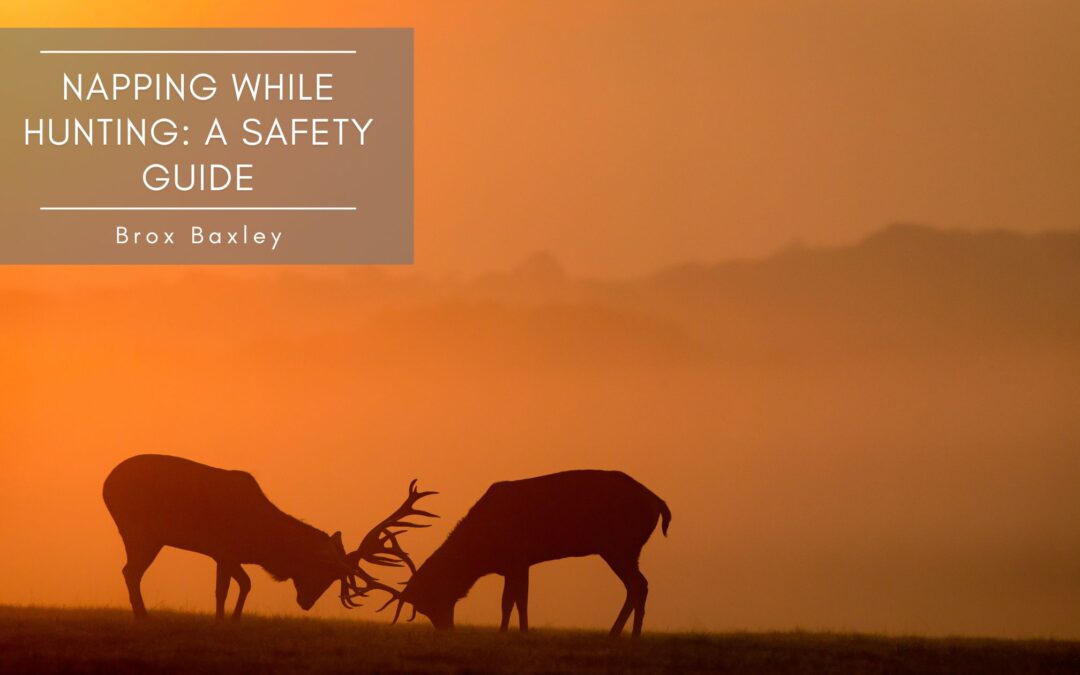Hunting requires patience, focus, and sometimes long hours of waiting. It’s not uncommon for hunters to feel fatigued, especially during dawn or dusk when animals are most active. While taking a nap may seem tempting, it’s essential to prioritize safety to prevent accidents and ensure a successful hunting trip. Here’s a safety guide for napping while hunting.
Choose a Safe Location:
Before taking a nap, select a safe and secure location away from potential hazards. Avoid areas with steep terrain, cliffs, or bodies of water that pose a risk of injury if you accidentally roll or fall asleep. Opt for a flat, stable spot with clear visibility to minimize the risk of surprises from wildlife or other hunters.
Inform Others:
Always inform your hunting companions or someone else of your whereabouts and intention to nap. Let them know your planned duration for the nap and establish a communication plan in case of emergencies or unexpected events. This ensures that someone is aware of your situation and can provide assistance if needed.
Set a Timer:
Set a timer or alarm on your watch or phone to prevent oversleeping and ensure you wake up at the intended time. Choose a gentle alarm tone that won’t startle you or disturb the peace of the hunting environment. Setting a timer helps you stay disciplined and avoid sleeping longer than necessary, reducing the risk of missing out on hunting opportunities.
Stay Warm:
Temperature fluctuations are common during hunting trips, especially in the early morning or late evening. Dress in layers and use appropriate insulation, such as blankets or sleeping bags, to stay warm and comfortable while napping. Proper insulation helps regulate body temperature and prevents hypothermia, ensuring a restful nap without compromising well-being.
Maintain Situational Awareness:
Even while napping, maintain situational awareness of your surroundings and remain vigilant for any signs of wildlife activity or approaching hunters. Keep your ears tuned for sounds of movement or animal calls, and periodically scan the area visually to assess potential threats or opportunities. Staying alert enhances your safety and readiness to react if needed.
Avoid Napping Alone:
Avoid napping alone while hunting, especially in remote or unfamiliar areas. A hunting partner or companion provides extra safety and support, reducing the risk of unnoticed accidents or emergencies. If hunting solo, ensure you have a reliable means of communication, such as a two-way radio or satellite phone, to summon help if necessary.
Stay Hydrated and Nourished:
Dehydration and hunger can affect your alertness and cognitive function, making it harder to stay awake and focused while hunting. Before taking a nap, hydrate yourself adequately and consume a light snack or meal to maintain energy levels. Avoid consuming excessive amounts of caffeine or sugary beverages, as they can lead to energy crashes and interfere with sleep quality.
In summary, napping while hunting can be a practical strategy to combat fatigue and recharge during long hours in the field. Nonetheless, it’s essential to prioritize safety and adhere to these guidelines to ensure a restful and safe nap experience. By choosing a secure location, informing others, setting a timer, staying warm, maintaining situational awareness, avoiding napping alone, and staying hydrated, you can nap confidently and enjoy a successful hunting trip.

